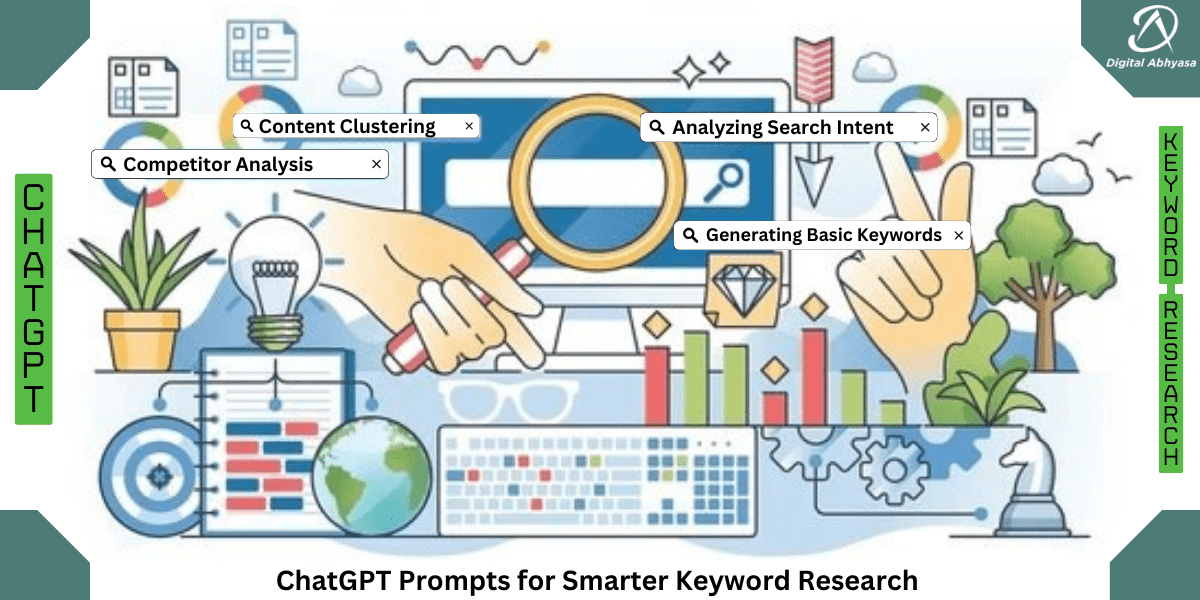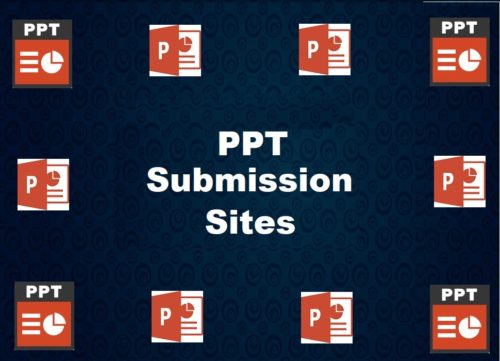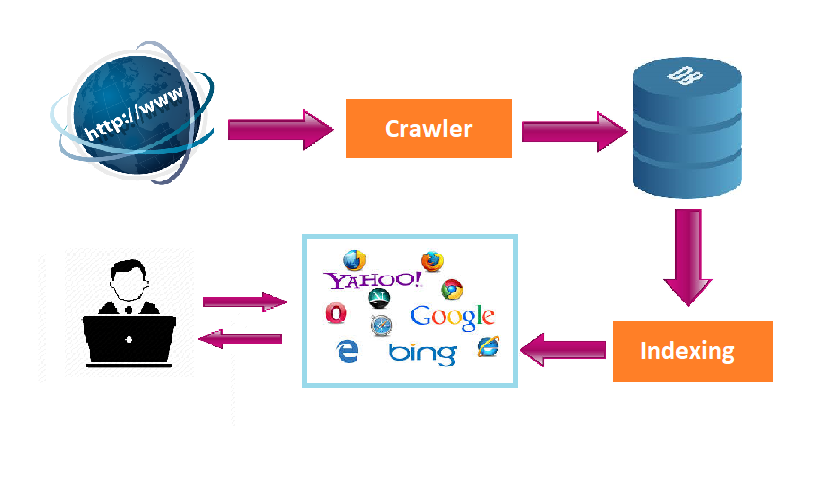Keyword research is one of the most crucial parts of any SEO strategy and content marketing, The best ChatGPT keyword research prompts can be a quick and easy way to create/generate keyword ideas for your business. Going through countless tools and data can feel exhausting, making you wonder if there is a simpler way. Meet ChatGPT, a great tool that is making keyword research easier and smarter.
The best part ChatGPT is? You do not need to be a tech expert. It helps you uncover opportunities, understand your audience better, and stay ahead of your competition without the hassle. Whether you are looking for industry/niche ideas or trends, ChatGPT helps you finding the right keywords simpler and faster. By picking right keyword helps businesses attract the right audience and drive organic traffic to their websites.
In this guide, we will show you how ChatGPT is transforming keyword research with easy-to-use prompts and strategies.
Want to make Keyword research simpler? Let us get started!
Essential ChatGPT Prompts for Keyword Discovery
1. Generating Basic Keywords:
Prompts to get a starting list of keywords based on a topic or niche.
Prompt 1: Prepare a table of 50 keywords for the primary topic, “AI SEO” The list should include short-tail, long-tail, LSI, and transactional keywords.
Prompt 2: Find question-based keywords related to “SEO”
Prompt 3: Suggest keywords to target for a new blog about [topic]
Prompt 4: Generate 10 keywords that I can write a targeted blog post about in the [ topic] niche
Prompt 5: Give me 10 semantically relevant, but unique topics under the main category of [topic]
Prompt 6: Generate a list of high search volume keywords for the [industry] niche
Prompt 7: Provide keyword ideas for a blog post about [topic]
Prompt 8: Find low competition keywords in the [industry] sector
Prompt 9: Suggest keywords for an e-commerce store selling [your product]
Prompt 10: Find keyword opportunities to improve search engine ranking for [Your website]
Prompt 11: Identify the best keywords for PPC campaigns in the [sector]
Prompt 12: Provide keyword suggestions for a YouTube video about [topic]
2. Expanding Keywords
Prompts to generate long-tail keywords and related phrases.
Prompt 1: Using [fitness] as the central seed keyword, identify 15 long-tail keywords that potential customers might use when they look for [gym, training programs]
Prompt 2: Generate long-tail keyword phrases that include [seed keyword]
Prompt 3: Generate 20 longtail keywords that have a low competition and high search volume, all related to [topic].
Prompt 4: What are some of the top long-tail keywords currently trending in the [niche/industry]
Prompt 5: Generate 20 long-tail keywords related to ‘[topic]’ with high search volume but low competition. Include their keyword difficulty, target audience, and search volume.
Advanced ChatGPT Prompts for Keyword Research
1. Analyzing Search Intent
ChatGPT Prompts to categorize keywords by user intent (informational, navigational, commercial, and transactional).
Prompt 1: Categorize the keywords below based on their search intents – informational, navigational, commercial, and transactional. Give me the results in a table [list of keywords]
Prompt 2: Filter the below list of keywords into categories, target audience, search intent, search volume and add information to a six-column table: List of keywords – [LIST OF KEYWORDS], Keyword Search Volume [SEARCH VOLUMES] and Keyword Difficulties [KEYWORD DIFFICUTIES]
Prompt 3: Create a table of 20 keywords for [topic], categorized by search intent (informational, commercial, navigational, transactional,). Include search volume and keyword difficulty scores.
Prompt 4: Identify the search intent behind each of these keywords (informational, navigational, commercial transactional) and suggest suitable content types.
2. Competitor Analysis
By using competitor analysis, you can identify content gaps in the business, discover new opportunities for brand growth, and improve your competitive advantage.
Prompt 1: Find keyword ideas from the following text [add your competitor’s content]
Prompt 2: List the top-performing keywords for [competitor’s website]
Prompt 3: Generate 15 top-ranking keywords for [competitor name] in [niche/industry] based on these content samples: [add sample content]
Prompt 4: Analyze this content and generate 30 longtail keywords that are driving organic traffic to [competitor website]: [add content]
3. Content Clustering
Clustering is the process of grouping keywords based on the categories/specific topic that are relevant to your webpages. A single cluster includes a core topic and several related subtopics, which point back to the core topic.
Prompt 1: [add list of keywords]. Organize the keywords into relevant keyword clusters
Prompt 2: Create a keyword cluster with relevant keywords for me to target and build landing pages for, I’m selling [sofas, chairs, garden furnitures, dining tables, kitchen tables and carpets]
Prompt 3: Cluster the following keywords into relevant groups: [list of keywords]
Prompt 4: Group the following keywords into logical clusters: [list of keywords]
Prompt 5: Generate a cluster of SEO keywords related to [keyword]
4. Generating Local Keywords
ChatGPT Prompts to target location-specific keyword opportunities.
Prompt 1: Generate a list of location-based keywords for [services/products] in [city/state]. Include terms that locals might use when searching for this service
Prompt 2: What are some long-tail keywords for [services/products] targeting users in [specific location]? Focus on local attractions, events, or landmarks
Prompt 3: Create a list of location-specific search queries related to [niche] in [city/region]. Include variations with ‘near me,’ ‘local,’ or specific neighborhood names
Prompt 4: Suggest keywords for [business/service] that combine [location] with popular seasonal or cultural events in the area
Prompt 5: Help me find keywords for [business/service] that are commonly used by residents of [location] or visitors looking for local recommendations
5. Alphabet Soup Method
The Alphabet Soup method is a simple way to find new keyword ideas. for example you can ask ChatGPT something like: Give me some popular keywords that include the word “Digital Marketing” starting with the letters A to Z. This trick can help you discover unique and useful keywords that you might not have thought of before.
Prompt 1: Give me popular keywords that includes the keyword “SEO”, and the next letter of the word starts with a
Prompt 2: Give me five popular keywords that include “Digital Marketing” in the word, and the following letter starts with a. Once the answer has been completed, move on to giving five more keywords that include “Digital Marketing” for each letter of the alphabet b to z
How to Maximize the Effectiveness of ChatGPT for SEO
1. Pairing ChatGPT with SEO Tools
By Using a combination of ChatGPT with SEO tools is like having the perfect team to improve your website ranking. ChatGPT will assist you come up with creative ideas, write content, and even find keywords, while SEO tools such as SEMrush, Ahrefs, or Google Trends provide relevant data to help guide that strategy.
For example, you can ask ChatGPT to suggest keyword ideas or create catchy meta descriptions. Then, use an SEO tool to find which high search volume keywords have low competition.
By combining the creativity of ChatGPT with insights from SEO tools, you can create user-friendly content that is also optimized for search engines. It is an easy and effective way to get better results, whether you’re just starting out or already experienced in SEO. Try it out—you’ll see the difference!
2. Refining Prompt Inputs
By Writing clear and specific prompts is the key to get better and exact answers from tools like ChatGPT. Think of it like asking a friend for help—you need to be clear about what you want.
For example, instead of asking, “Tell me about SEO,” try something like, “Can you explain the basics of SEO in simple language for beginners?” This provides more guidance and helps ChatGPT give you the correct answer.
Also, include some context. If you’re writing for students, professionals, or a general audience, mention that. For instance, “Write about how AI helps with keyword research in an easy, friendly tone for beginners.” And don’t worry if it’s not perfected the first time. You can always adjust the prompt until you get what you need. The clearer you are, the better the response will be—it’s like giving directions with all the details included!
Benefits of AI-powered insights for SEO:
Keywords are the most important part of SEO because they connect search engine users to your content. AI tools can explore huge amounts of data, identify relevant keywords, and can generate helpful insights. Using AI for SEO strategy will improve your content accordingly and increase your chances of ranking higher in search engine results.
Conclusion:
Using the above ChatGPT prompts in your keyword research may help better understand the competitive landscape and guide the strategy and decisions you make.



